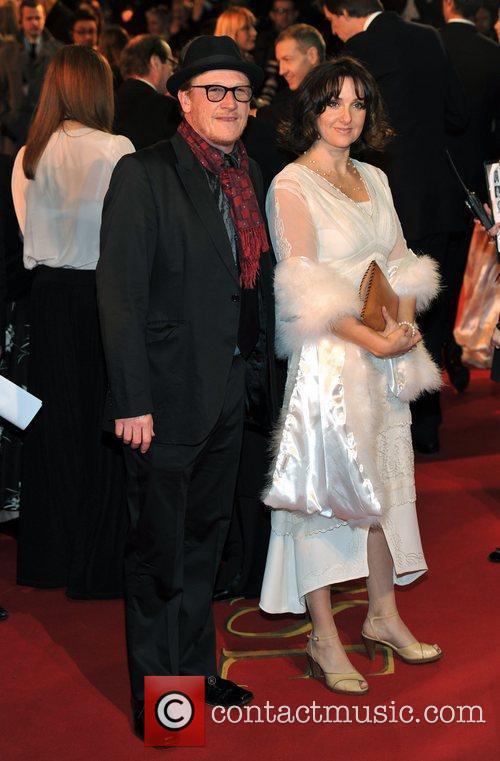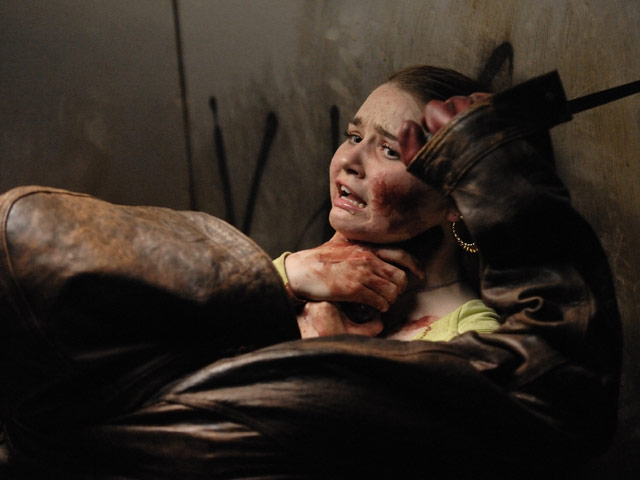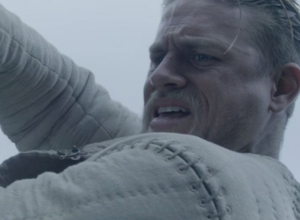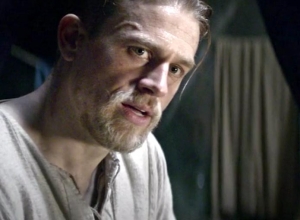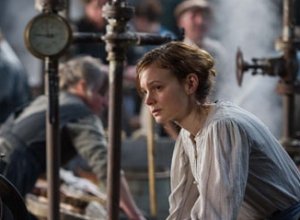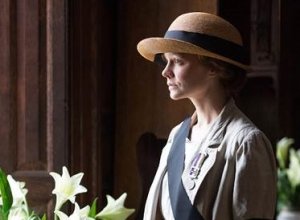Based on real events a century ago that still resonate loudly today, this movie takes a cleverly fictionalised angle to explore the suffrage movement, a story that astonishingly has never been put on film before. Screenwriter Abi Morgan's script brings intelligence and honesty to the characters, avoiding cliches to make the political statements as fresh and important today as they were back then. And it's anchored by another solid performance from Carey Mulligan.
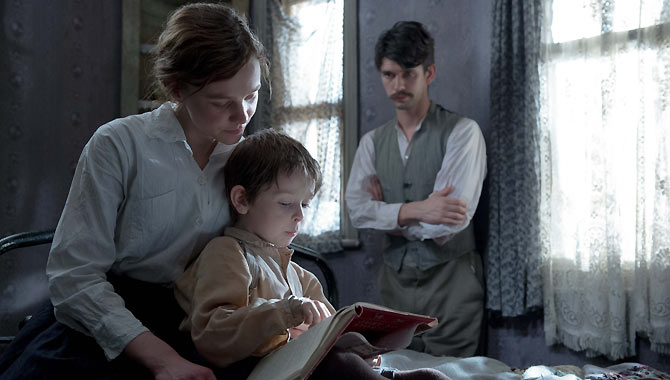
She plays Maud, a young woman in 1912 London who has grown up working in a grim laundry, which is where she met her husband Sonny (Ben Whishaw). Then her best friend Violet (Anne-Marie Duff) introduces her to the women's voting rights movement led by Emmeline Pankhurst (Meryl Streep). And Maud is intrigued, joining with her local chemist's wife Edith (Helena Bonham Carter) for protests and getting involved in civil disobedience. This puts her on the list of offenders followed by a tenacious policeman (Brendan Gleeson), and Sonny finds it very difficult to cope with the embarrassment. So Maud has to make a very tough decision about whether to carry on the fight.
Making the film's main characters working-class heroines was a clever way to draw in modern-day audiences. In real life, the suffragettes were middle-class women who didn't particularly want any of the working class (men or women) to have the vote. But of course, once the movement started, it didn't end there, ultimately extending right through society. And the film cleverly mixes these fictional characters alongside real historical figures to bring the events vividly to life. Mulligan provides the emotional gut punch as an intelligent but uneducated woman who has been abused all her life and is finally standing up for herself. Her scenes with each of the supporting cast have real power, including less sympathetic characters like Whishaw's loving but fearful husband.
Continue reading: Suffragette Review

